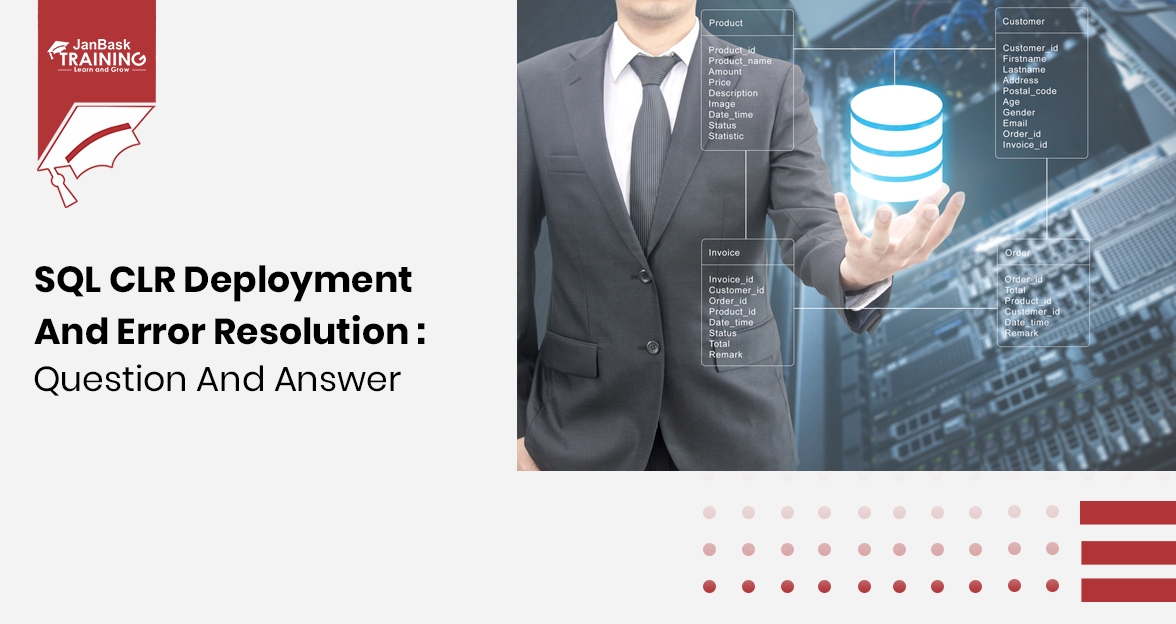 Grab Deal : Upto 30% off on live classes + 2 free self-paced courses - SCHEDULE CALL
Grab Deal : Upto 30% off on live classes + 2 free self-paced courses - SCHEDULE CALL

 Grab Deal : Upto 30% off on live classes + 2 free self-paced courses - SCHEDULE CALL
Grab Deal : Upto 30% off on live classes + 2 free self-paced courses - SCHEDULE CALL

Defining business requirements is a crucial step in SQL-based data warehouse projects. It sets the stage for making important decisions and guiding development teams in prioritizing tasks and designing practical solutions. This process ensures the data warehouse aligns well with the organization's goals. The requirements become more accurate and detailed through careful preparation, debriefing interviews, and data profiling.
Below are some of the most frequently asked business Requirements-related interview questions.
Ans. Business requirements are crucial because they form the backbone of a successful data warehouse/business intelligence (DW/BI) system. They guide the development team in making critical decisions, from big strategic choices like which subject areas to prioritize to more minor design details, such as how to display essential metrics on user interfaces. Essentially, they ensure that the DW/BI system aligns closely with the organization's goals and user needs, resulting in a more effective and user-friendly solution.
Ans. Obtaining solid business sponsorship is paramount for a successful DW/BI project. Business sponsors play a pivotal role in defining the system's purpose, content, and priorities. They lead in securing resources and advocating for the DW/BI system within the organization.
To be effective, a sponsor should be visionary, understanding the value of information and its practical applications; resourceful, capable of obtaining necessary resources and facilitating organizational change; and reasonable, balancing enthusiasm with acknowledging that building a significant information system requires time and resources. Identifying individuals with these qualities is crucial for project success.
Ans. Defining enterprise-level business requirements is crucial before delving into specific DW/BI system projects. This broader perspective aids in setting priorities and making flexible implementation decisions across multiple iterative projects. The long-term goal of the DW/BI team is to construct an enterprise information infrastructure.
With a comprehensive understanding of business requirements at the enterprise level, achieving this goal becomes more accessible. It emphasizes the importance of a strategic approach, ensuring that individual projects align cohesively with the overarching objectives of building a robust and adaptable DW/BI system.
Ans. The initial scope of an enterprise requirements project primarily focuses on defining and prioritizing enterprise-level requirements, postponing detailed project implementation planning for later stages. This phase typically involves conducting user interviews, documenting interview findings, holding meetings, and finalizing the requirements document.
Depending on the number of interviews conducted and the complexity of requirements, this phase typically spans three to six weeks. This approach allows for a thorough understanding of business needs before delving into detailed project planning, ensuring alignment with overarching enterprise goals.
Ans. Effective preparation is vital before delving into the requirements definition. Before interviews with business and technical stakeholders, it's essential to thoroughly understand your business, competitors, industry, and customers.
This involves studying the organization's annual report, internal strategy documents, and online sources for insights into industry challenges. Familiarizing yourself with the business terms and terminology is equally essential. Essentially, this preparation, akin to homework, provides a foundational understanding that enhances the quality of interviews and ensures a more informed and comprehensive requirements definition process.
Ans. Immediate debriefing after each interview is crucial to ensure accurate documentation and avoid memory loss. During this process, it's essential to review notes, clarify terms, and capture critical issues promptly.
Elements to highlight and document include common business requirement themes, necessary business processes (data sources), specific requirements for reports and analyses, potential misunderstandings or incomplete notes, known data or feasibility issues, and established success criteria.
This proactive debriefing approach enhances the overall documentation quality, reduces the risk of information gaps, and facilitates a more efficient and comprehensive requirements-gathering process.
Ans. Data profiling, also known as data auditing, is essential during the requirements definition process, serving as a preliminary assessment of organizational data assets with a simple red light/green light approach. This helps identify potential disqualifications of data sources early on.
The Lifecycle includes two more critical points for data profiling: during the design of the dimensional model and the design and implementation of the ETL process. In-depth data profiling becomes more extensive when selecting a specific business process and defining project-level business requirements, ensuring a comprehensive understanding of data issues throughout the DW/BI project.
Ans. The overall findings document for enterprise-level requirements should encompass business process summaries, the bus matrix, and prioritized results, with interview summaries potentially included as an appendix for readers seeking additional detail.
The bulk of the document will consist of a list of business processes and associated requirements, detailing their business value, data quality and feasibility issues, and the organizational benefits. Some requirements may necessitate new transaction systems or significant changes to existing ones. However, even a preliminary review of this list can spark ideas on how the DW/BI system can address these needs in the short term.
Ans. The prioritization process in DW/BI projects is a potent business tool, particularly for technical professionals. This statement holds weight based on our extensive successful use of this tool. Sometimes, prioritization sessions led clients to delay immediate DW/BI project progress.
This decision often results from a newfound understanding of the prioritization process regarding the commitment required or the scale of existing data problems. Such instances are deemed successes, indicating that senior management recognizes the need to address underlying issues before building a DW/BI system, ensuring a more solid foundation.
Ans. Gathering project-level requirements follows the same foundational process as enterprise requirements gathering but focuses on a specific business process selected from the bus matrix. The enterprise requirements definition lays the groundwork for project requirements.
In this step, the goal is to gather detailed information crucial for success in three tracks: developing practical and flexible data models, understanding technical considerations (data volumes, cleaning, movement, user access, etc.) for robust technical architecture, and clarifying business analysis requirements for building initial business intelligence applications.
This comprehensive understanding ensures the warehouse's present and future support for various analytic needs.
SQL Server Training & Certification

Defining business requirements is a pivotal phase in SQL-based data warehouse projects. This process establishes the bedrock for strategic decision-making, directing development teams in prioritizing subject areas and making informed design choices.
For those eager to boost their SQL skills, JanBask Training's SQL courses offer a user-friendly and thorough approach, equipping individuals with the skills to navigate and contribute effectively to such projects.

SQL Server MERGE Statement: Question and Answer


Mastering INSERT and OVER DML Syntax: Interview Questions Guide

SQL CLR Deployment and Error Resolution: Question and Answer

Cyber Security

QA

Salesforce

Business Analyst

MS SQL Server

Data Science

DevOps

Hadoop

Python

Artificial Intelligence

Machine Learning

Tableau
Download Syllabus
Get Complete Course Syllabus
Enroll For Demo Class
It will take less than a minute
Tutorials
Interviews
You must be logged in to post a comment